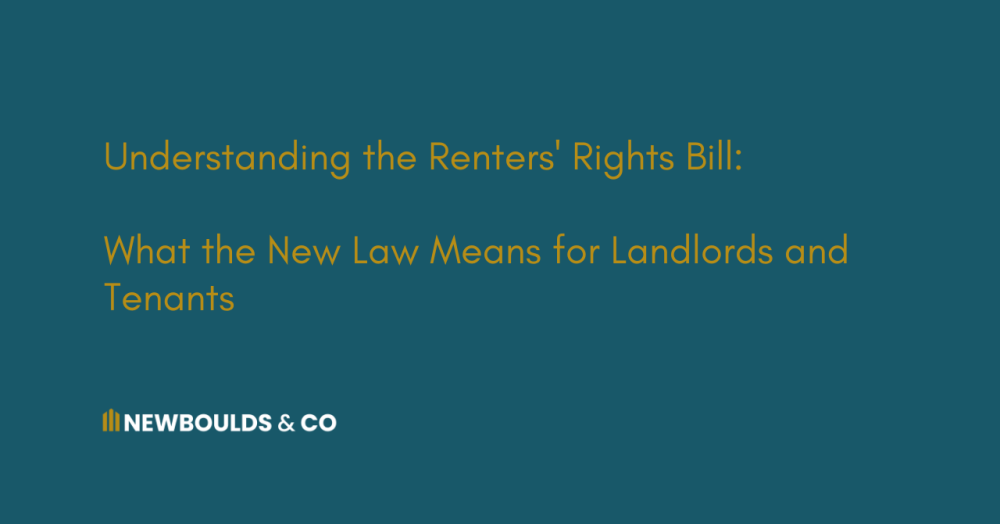
Understanding the Renters' Rights Bill: What the New Law Means for Landlords and Tenants
The journey of the Renters (Reform) Bill has been a long one, and now that it has received Royal Assent, it's time to unpack what this means for you, whether you're a landlord managing properties or a tenant making your next home in our vibrant area. At its heart, this new law aims to create a fairer, more secure private rented sector, but like any major legislative change, it comes with nuances that deserve a closer look.
Goodbye, Section 21: A New Era for Tenancies
Perhaps the most talked-about change is the abolition of 'no-fault' evictions, previously facilitated by Section 21 of the Housing Act 1988. For tenants, this is a monumental shift, offering greater security and peace of mind. It means landlords can no longer evict tenants without a specific, legally defined reason. This move is designed to empower tenants, allowing them to challenge poor conditions or unfair rent increases without the fear of losing their home.
For landlords, this necessitates a more robust approach to tenancy management. While Section 21 is gone, landlords can still regain possession of their property under specific, legitimate grounds, such as wanting to sell the property, moving into it themselves, or if the tenant is in breach of their tenancy agreement (e.g., persistent rent arrears or anti-social behaviour). The key is that these grounds must be proven, and the process will be more transparent and accountable. This change encourages stronger communication and proactive management from the outset of a tenancy.
Introducing Periodic Tenancies: Flexibility for All
Another significant aspect of the new law is the move towards a system of periodic tenancies. This means that all new tenancies will be periodic from day one, with no fixed terms. For tenants, this offers increased flexibility, allowing them to give two months' notice to leave a property at any point, without being tied into a long-term contract they no longer need or want. This is particularly beneficial for those whose circumstances might change unexpectedly.
Landlords will also operate under this periodic system. While it removes the certainty of a fixed term, it also simplifies the process of renewing contracts. Landlords will need to give two months' notice if they wish to end a tenancy based on a legitimate ground. This shift underscores the importance of maintaining good landlord-tenant relationships and ensuring properties are well-maintained to encourage longer-term occupancy.
Digital Private Rented Sector Database
Landlord Ombudsman
Illegal For Landlords To Discriminate Against Tenants Who Receive Benefits
Strengthening Tenants' Rights: Pets and Property Standards
The Bill also introduces new rights for tenants, including the right to request to keep a pet, which landlords cannot unreasonably refuse. This is a welcome change for many pet owners in our community, recognising the important role pets play in family life. Landlords will be able to require pet insurance to cover any potential damage, offering a fair compromise.
Furthermore, the new law aims to improve property standards. While the specifics are still being finalised, the intention is to ensure all rented homes are safe and decent. This aligns with our agency's commitment to quality housing and reflects the expectations of tenants in our area. For landlords, this means ensuring properties meet current safety regulations and are maintained to a high standard, which ultimately protects your investment and attracts responsible tenants.
What This Means for Our Local Area
In our local community, these changes will undoubtedly foster a more balanced and secure rental market. We believe that clear communication and a proactive approach are more important than ever. As a director-led agency, we are here to guide both landlords and tenants through these new regulations. We don't employ juniors or outsource tasks; every client deals directly with a director, ensuring you receive expert, accountable advice tailored to your specific situation.
We understand that navigating new legislation can feel daunting. Our aim is to simplify this for you, providing factual, jargon-free advice. We're here to help landlords understand their new responsibilities and ensure tenants are aware of their enhanced rights, fostering positive relationships across the board.
Looking Ahead
The Renters (Reform) Bill represents a significant evolution in the UK's private rented sector. While the full impact will unfold over time, the core principles of greater security for tenants and clearer responsibilities for landlords are now enshrined in law. We encourage you to stay informed and reach out if you have any questions about how these changes affect your property or your next home.
What are your thoughts on the new Renters (Reform) Bill? We'd love to hear your opinions in the comments below. If you're a landlord seeking an accurate valuation or advice on managing your property under the new law, please complete our market appraisal form. Tenants looking for their next home can register for property alerts to stay updated on available properties in our area.